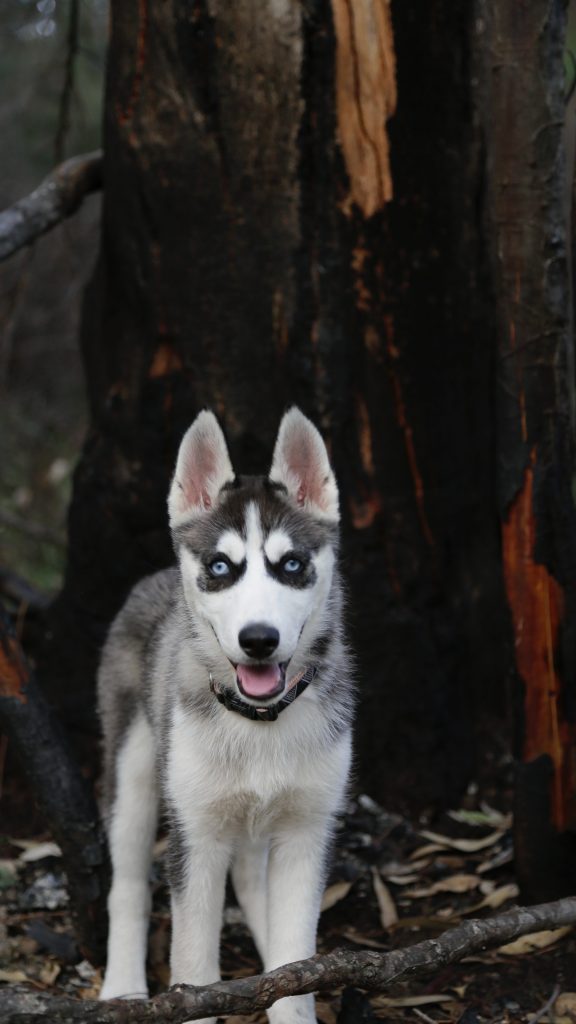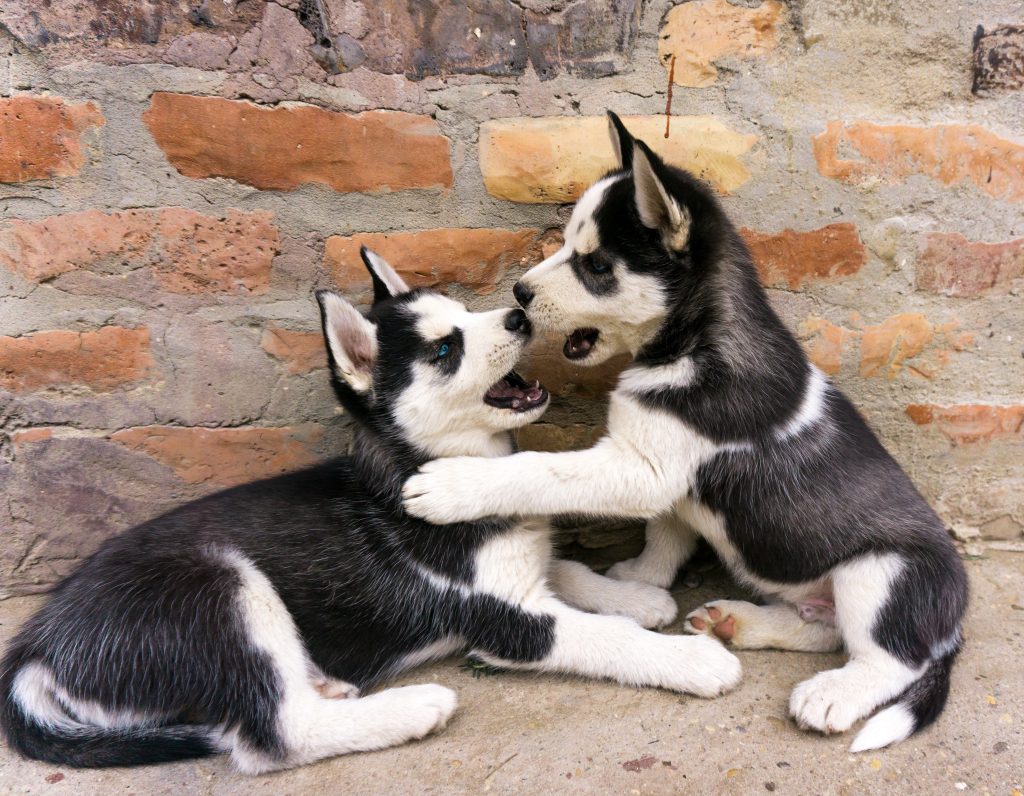Husky puppies are undeniably one of the cutest and most energetic breeds. However, their intelligence and independent nature can make training challenging. Fear not! In this article, we’ll explore ten practical steps to how to train a Husky puppy and set them up for a lifetime of obedience and happiness.
Why You Should Train a Husky Puppy
Training is not only essential for teaching your Husky puppy obedience but also provides numerous benefits that contribute to their overall well-being and the bond between you and your furry friend. Here are some key benefits of training Husky puppies:
- Establishes Communication: Training helps establish clear communication between you and your Husky puppy. Teaching commands and cues allows you to effectively convey your expectations and build a language of understanding. This communication promotes a harmonious and cooperative relationship.
- Mental Stimulation: Huskies are intelligent dogs that thrive on mental stimulation. Training sessions provide mental challenges that keep their minds engaged and active. This mental exercise helps prevent boredom, which can lead to destructive behaviors like excessive chewing or digging.
- Builds Trust and Bonding: Training sessions create opportunities for positive interactions and bonding between you and your Husky. The time spent together during training fosters trust, strengthens the bond, and enhances the sense of companionship. As your Husky learns to rely on you for guidance and rewards, they develop a deeper connection with you.
- Enhances Safety: Training your Husky puppy is crucial for their safety. Commands like “come” and “stay” can prevent dangerous situations, such as running into traffic or approaching potentially harmful objects or animals. A well-trained Husky will respond reliably to commands, allowing you to keep them out of harm’s way.
- Promotes Good Behavior: Through training, you can shape your Husky puppy’s behavior and teach them what is expected of them. By rewarding desired behaviors, such as sitting calmly or walking on a loose leash, and discouraging unwanted behaviors, you encourage positive habits and prevent the development of behavioral problems.
- Facilitates Socialization: Training plays a vital role in socializing your Husky puppy with other dogs, animals, and people. Exposing them to different environments, sounds, and experiences during training helps them become confident and well-adjusted in various social settings. This socialization is essential for preventing fear or aggression towards unfamiliar situations or individuals.
- Improves Focus and Impulse Control: Huskies can be easily distracted due to their high energy levels and prey drive. Training helps improve their focus and impulse control, teaching them to pay attention to you and resist distractions. This skill becomes invaluable in everyday situations, whether you’re walking in a busy area or encountering other dogs on the street.
- Promotes Positive Energy Outlet: Training provides a positive outlet for your Husky puppy’s abundant energy. Engaging in structured training sessions and physical activities, such as obedience exercises or agility training, helps channel their energy constructively, reducing the likelihood of them engaging in destructive or hyperactive behaviors.
- Encourages Lifelong Learning: Training is not limited to basic commands; it sets the foundation for ongoing learning throughout your Husky’s life. Once your puppy has grasped the basics, you can continue to challenge them with more advanced commands, tricks, or activities. This ongoing training and mental stimulation contribute to their ongoing development and fulfillment.
- Fosters a Well-Behaved Companion: Ultimately, training your Husky puppy leads to the creation of a well-behaved and obedient companion. A well-trained husky is a joy to be around, making them welcome guests in public spaces, and strengthening the bond between you and your furry friend.

How to Train a Husky Puppy in 10 Ways
Start Early, Start Right
Training should begin as soon as you bring your Husky puppy home. Establish a consistent daily routine, including feeding times, bathroom breaks, playtime, and training sessions. This early structure will help your puppy learn boundaries and expectations.

Socialization is Key
Huskies are social animals, and early socialization is crucial for their development. Introduce your puppy to various environments, people, animals, sights, and sounds. Organize playdates with other well-behaved dogs and encourage positive interactions. Socializing will help your Husky become well-rounded and confident.

Positive Reinforcement
Huskies respond best to positive reinforcement. Use treats, praise, and affection to reward desired behaviors. Be consistent and provide immediate rewards when your puppy follows commands or behaves well. This method fosters a strong bond between you and your Husky while making training fun and engaging.

Establish Consistent Commands
Teach your Husky puppy simple commands such as “sit,” “stay,” “come,” and “down.” Use clear, firm, and consistent verbal cues, accompanied by hand gestures if desired. Practice these commands in different environments, gradually increasing the distractions to reinforce obedience under various circumstances.

Leash Training
Huskies have a strong prey drive and can be prone to wanderlust. Proper leash training is vital for their safety and your peace of mind. Introduce your puppy to the leash gradually, using positive reinforcement and treats to associate it with positive experiences. Practice walking on a loose leash, rewarding your Husky for staying close to you.

Channel Their Energy
Huskies are high-energy dogs that require plenty of physical and mental stimulation. Engage in daily exercise sessions to burn off their excess energy. Activities like brisk walks, runs, interactive games, and puzzle toys will keep them mentally and physically engaged, preventing boredom and destructive behaviors.

Crate Training
Crate training can provide a safe space for your Husky puppy while aiding in housebreaking. Make the crate comfortable with bedding and toys. Gradually introduce your puppy to the crate by leaving the door open initially and feeding them inside. Once your husky feels comfortable, close the door briefly, gradually extending the duration.

Addressing Separation Anxiety
Huskies are prone to separation anxiety, making it essential to gradually accustom your puppy to being alone. Begin by leaving your Husky alone for short periods, gradually increasing the time as they become more comfortable. Provide engaging toys or treat-dispensing puzzles to keep them occupied while you’re away.

Be Patient and Consistent
Training a Husky puppy requires patience and consistency. Huskies are intelligent but can be stubborn, so don’t get discouraged. Maintain a positive attitude, set realistic expectations, and break training sessions into short, focused increments. Consistency in your approach will yield better results and reinforce positive behaviors.

Seek Professional Help if Needed
If you’re facing challenges or need additional guidance, don’t hesitate to seek professional help. A certified dog trainer or behaviorist can provide expert advice tailored to your Husky’s needs. They can assist with advanced training and behavior modification and address your concerns.

Challenges of Training Husky Puppies
While training a Husky puppy can be a rewarding experience, it’s essential to acknowledge and understand the unique challenges that come with this breed. Knowing these challenges, you can better prepare and approach training with patience and perseverance. Here are some common challenges you may encounter when training a Husky puppy:
- Independent Nature: Huskies are known for their independent and stubborn nature. They have a strong sense of adventure and a natural inclination to explore their surroundings. This independence can make them less inclined to obey commands, especially if they perceive them as boring or uninteresting. Training sessions may require extra patience and creative approaches to keep your Husky engaged and motivated.
- High Energy Levels: Huskies are an energetic breed that thrives on physical activity. They have a lot of energy to burn, and if not provided with enough exercise and mental stimulation, they can become restless and display destructive behaviors. Incorporating regular and vigorous activity into their daily routine is vital to help them positively release their energy. With proper outlets for their energy, training sessions may be easier as your Husky may be too excited or distracted to focus.
- Prey Drive: Huskies have a strong prey drive, which means they are instinctively driven to chase after small animals. This instinct can make recall training and off-leash activities particularly challenging. It’s essential to work on recalling commands in a controlled and secure environment, gradually increasing distractions and reinforcing their focus and obedience. Ensuring a safe and sturdy leash during walks is crucial to prevent them from bolting after prey.
- Socialization: While huskies are generally friendly and pleasant, they can have a strong pack mentality. It’s essential to provide proper socialization from an early age to help them develop good manners and positive interactions with other dogs and animals. However, Huskies may exhibit dominant behavior or be selective about their playmates due to their strong instincts. Ongoing socialization efforts, such as supervised playdates and exposure to various environments, will help your husky develop appropriate social skills.
- Vocalization: Huskies are known for their expressive vocalizations, including howling and barking. While these sounds can be endearing, excessive barking or howling can be challenging during training. It’s important to address this behavior early on by providing alternative outlets for their vocalization, such as training them to bark on command and redirecting their attention to other activities when they become excessively vocal.
- Patience and Consistency: Training any puppy requires patience and consistency, but huskies may test your resolve more than other breeds due to their independence. Training setbacks are common, and it’s important to stay patient, remain consistent in your training methods, and adapt your approach if necessary. Consistency is key in reinforcing desired behaviors and preventing confusion.

Conclusion
Training a husky puppy requires time, effort, and consistency, but the rewards are immeasurable. Starting early, focusing on positive reinforcement, socialization, and setting clear boundaries, you’ll shape your husky into a well-behaved and happy companion. Building a strong bond through training and patience will create a loving and fulfilling relationship with your husky that lasts a lifetime.

